- Статьи
- Society
- They're pushing for a penny: the MFO is exhausting the Muscovite with the courts in the case of someone else's loan
They're pushing for a penny: the MFO is exhausting the Muscovite with the courts in the case of someone else's loan
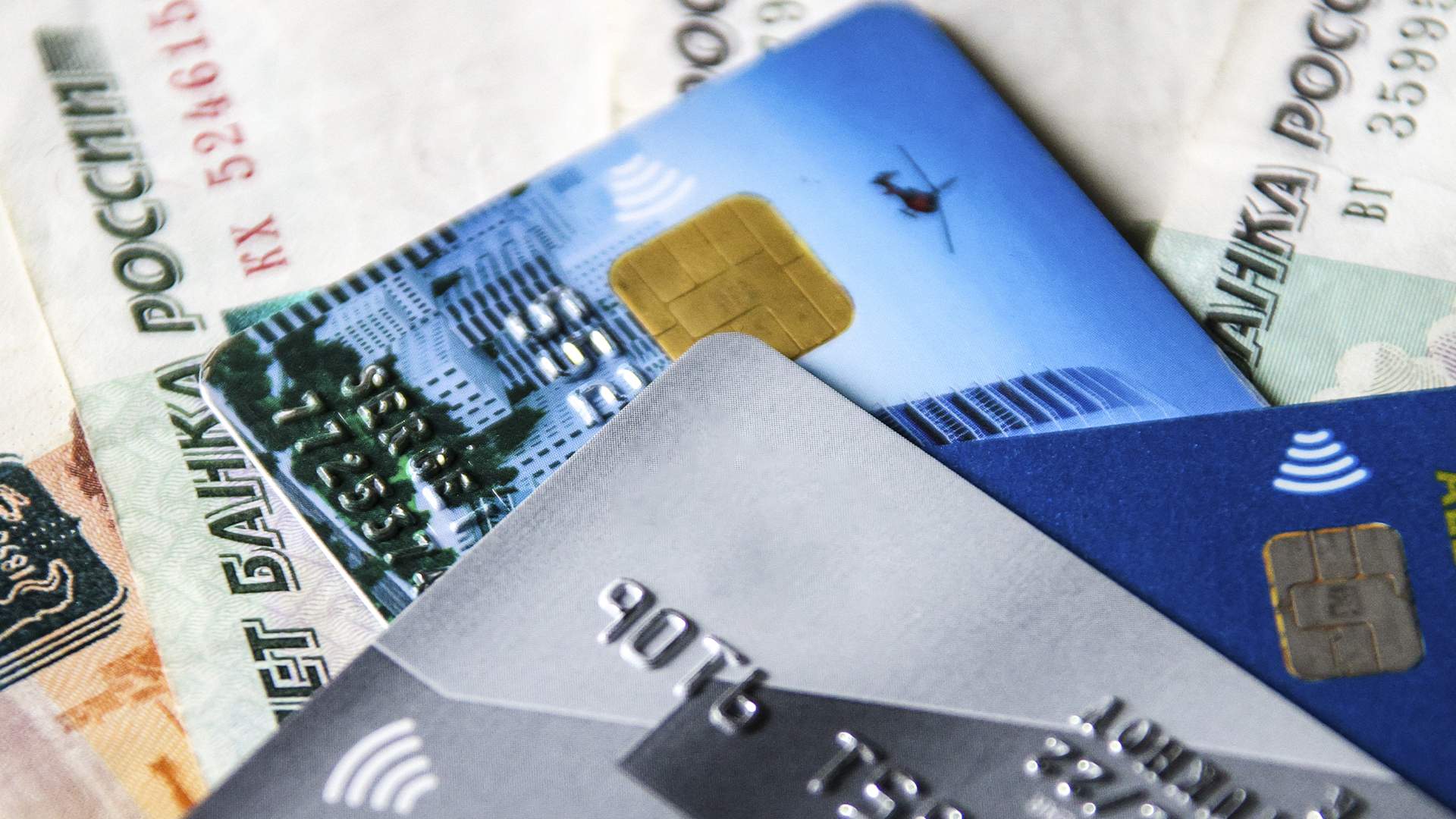
For almost two years, Muscovite Yuri Popov has been fighting with various authorities, repeatedly proving his innocence of a microscopic loan issued to fraudsters in another region. His account was seized for the sum of 7,460 rubles. But even after Popov's non-involvement in obtaining a loan was established, the lawyers of the MFO continue to demand that he repay someone else's debt. He is not the only victim of judicial harassing of citizens for the sake of "toxic income". Izvestia found out whether MFOs have the right to demand payment of someone else's debt through the court and how to restore justice.
They made me a debtor
The life of law-abiding Moscow fitness trainer Yuri Popov changed one day after he received a notification in his personal account at Gosuslugi that bailiffs intend to recover 7,460 rubles from him. I started to figure it out — it turned out that the decision was made on the basis of a court order on the claim of LLC MKK "Yours.A loan." The lawsuit was sent to Moscow Judicial District No. 232. The reason is the alleged non—payment of the loan debt of the microcredit company.
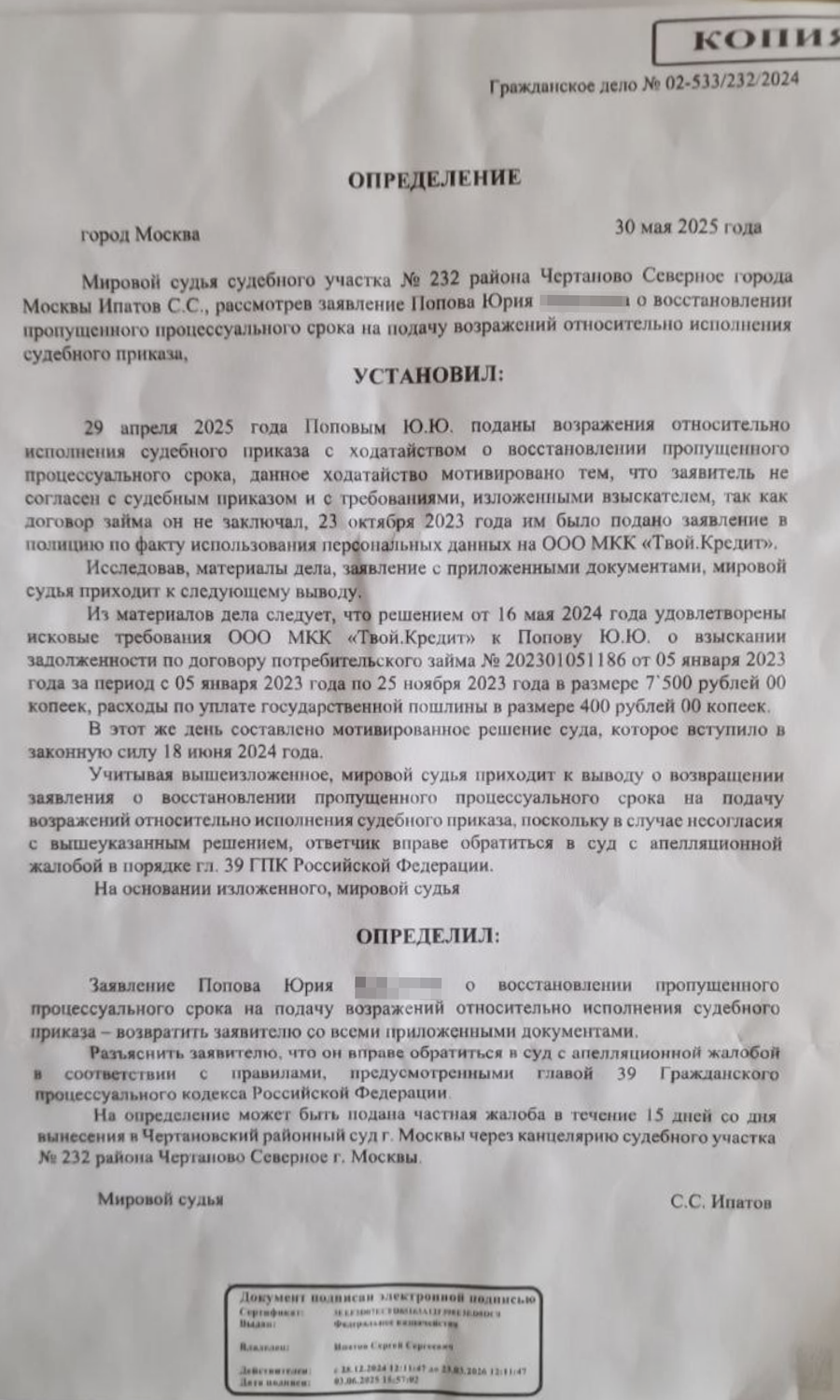
— I did not make any loans from any companies, I did not provide my data to the company, and in general, I first learned about it after being notified by Gosuslugi, - Yuri tells his story. — On October 23, 2023, I filed a fraud complaint with the police. I asked them to look into the situation and check the microfinance company. He also wrote a statement on the cancellation of the court order. To do this, I had to seek the help of a professional lawyer.
The justice of the peace of the judicial district No. 228 of the Chertanovo Tsentralnoye district sided with Popov, took into account his arguments and canceled the court order. Based on this decision, bailiff D.S. Khanzhin issued a corresponding resolution on the termination of enforcement proceedings on November 16. A week later, Yuri wrote a statement to the police asking them to check the legality of the microfinance company's actions. In particular, he asked the security forces to check how the company obtained his data. According to his version, the organization's employees could have issued a fictitious loan in his name. The law enforcement agencies were notified, and it seemed that the conflict had been resolved. But after a year and a half, the persecution of the Muscovite by the ICC continued.
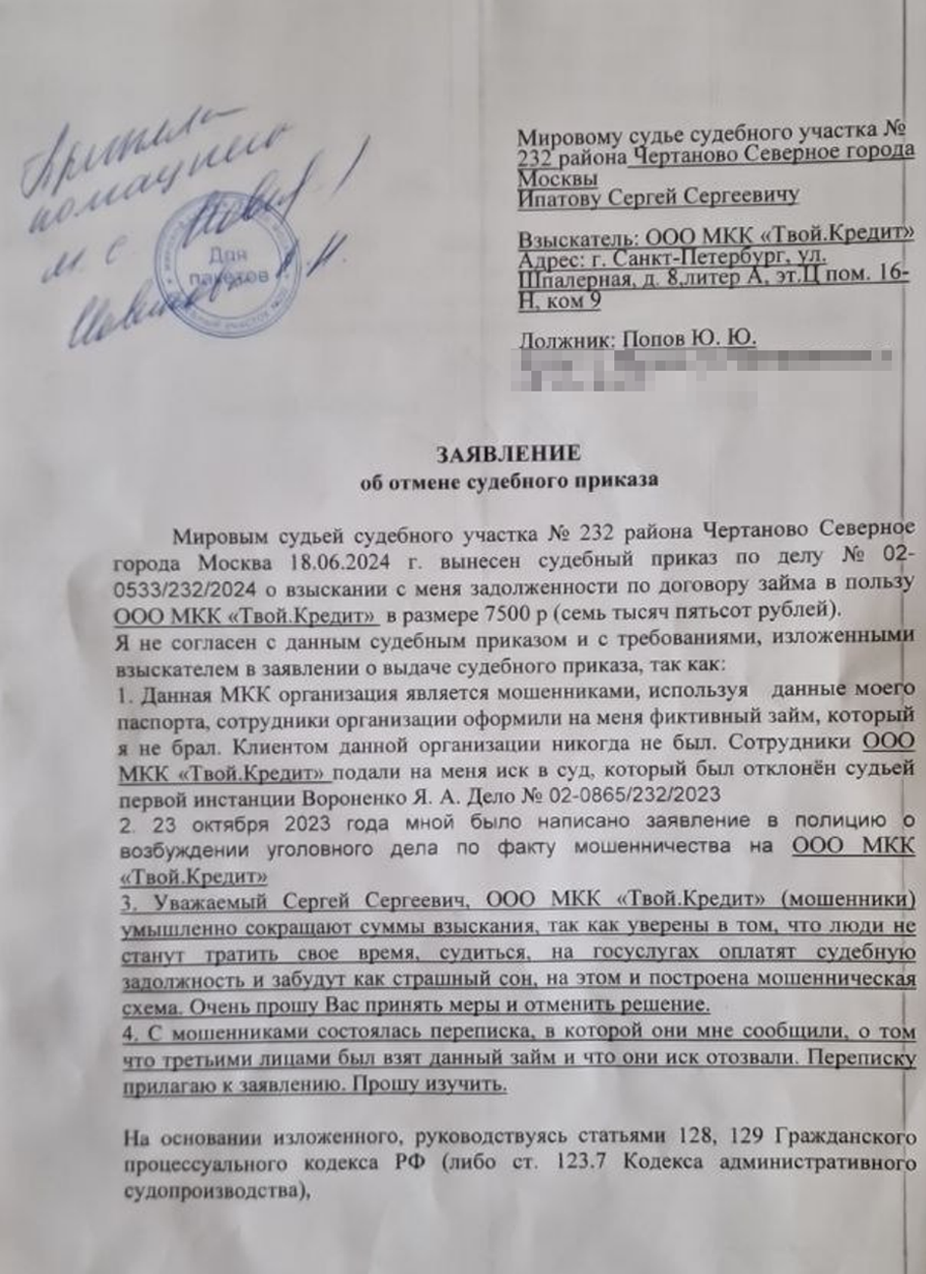
— In May, I received a new notification on the public services portal about the same story. I was informed about the arrest of funds on the basis of a bailiff's order for the same amount plus penalties. I was not notified of the claims properly. I have to run around the courts, hire lawyers, and waste my nerves.
What is known as "Yours.Credit"
Popov began a correspondence with a representative of the company, which now offers services under the Max brand.Credit. In the letters, the administration seems to agree with Popov's claims and reports that the claim was allegedly withdrawn based on the results of an internal audit. "The Company has reason to believe that a consumer loan agreement could have been concluded by third parties using your personal data. In this regard, we inform you that a decision has been made to close this agreement. The relevant information will be transmitted to the credit history bureau, and the processing of your personal data will be terminated. The personal account has been deleted," the message says (available to Izvestia). However, Popov believes that these statements have no legal force.
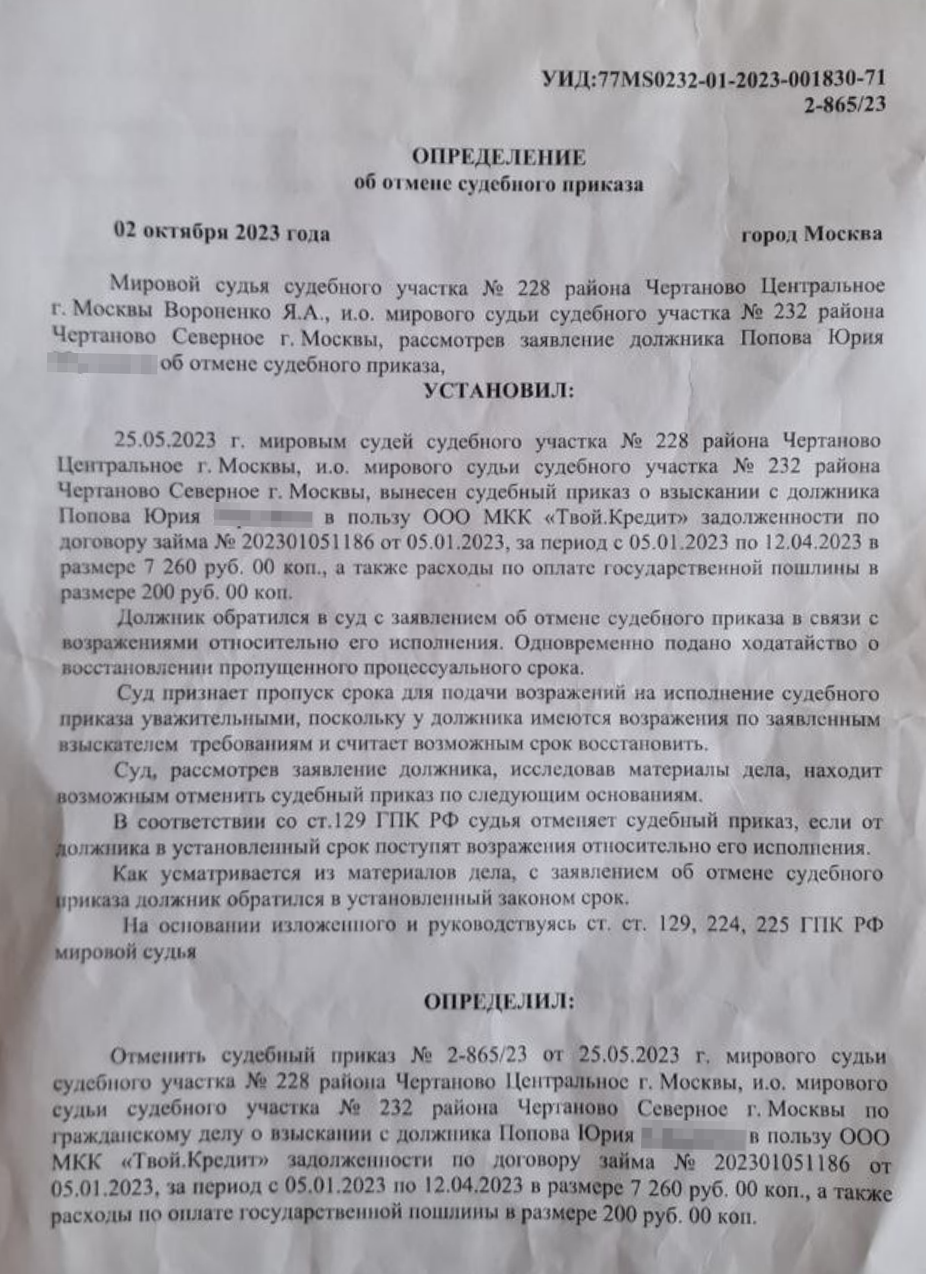
To solve the problem, Popov first needs to restore the missed appeal deadlines in court. He has to spend time and money. This is exactly what the idea of the MCC scheme is aimed at, Popov is sure.
— I came to court, and they told me that I'm not the only one. The situation is quite standard. It was as if the scammers had issued a remote loan on my behalf. All this is doubtful — today there are enough ways to reliably identify the borrower.
The company "Yours.Credit has repeatedly attracted the attention of regulators.
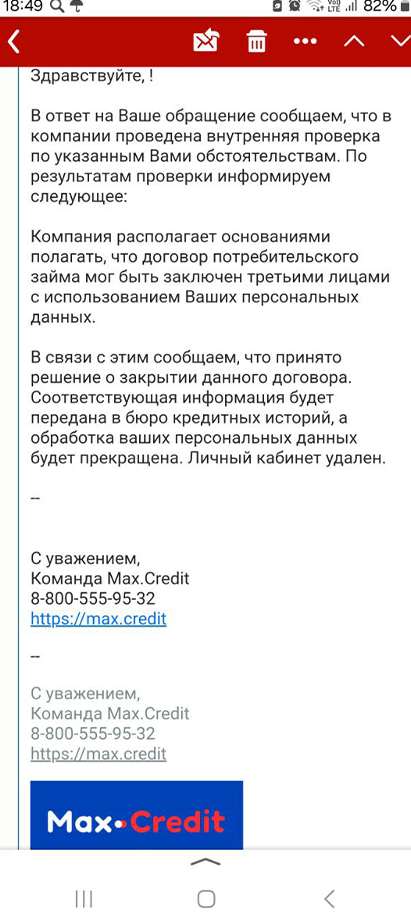
"According to the Bank of Russia, in their microfinance activities for citizens, these companies have repeatedly overestimated the amount of arrears on borrowers' payments, which has led to massive overpayments by borrowers and, as a result, prolonged unjustified enrichment of microcredit companies."Credit" and "M-Credit" (related to TC. — Izvestia) for a total amount of 413.2 million rubles," the Rospotrebnadzor office for the Udmurt Region said in a statement. The regulator also points out that consumers of financial services received inaccurate information about the amount of obligations to be paid.
"On 05/28/2024, the Bank of Russia excluded information about these companies from the state register of MFIs due to violations of the legislation of the Russian Federation," the agency's website says. Similar messages are posted on the portals of several regional departments of Rospotrebnadzor.
A look from the other side
It remains unclear why various judicial authorities continue to rule in favor of the ICC with such a reputation, condemning law-abiding people to long-term litigation involving lawyers. Izvestia sent a request for comment on the case of Y.Y. Popov to the FSSP press service.
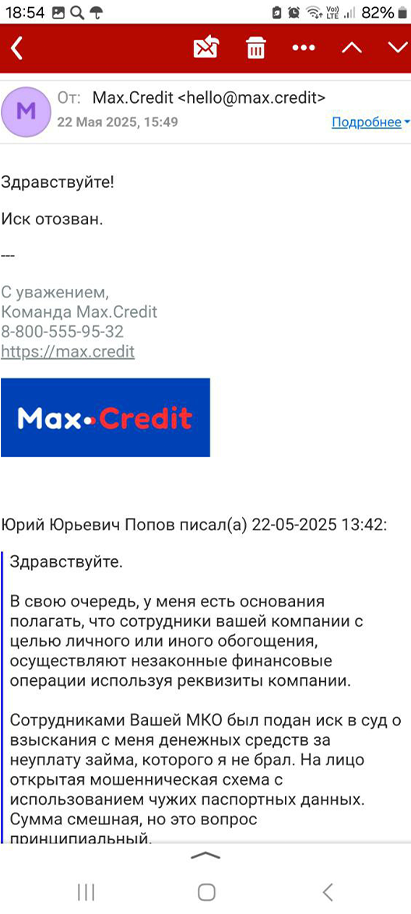
"The market, together with the regulator at all levels, is actively fighting fraudulent traffic," the press service of the Microfinance and Development self—regulatory organization commented on Popov's situation to Izvestia. — At the same time, there are similar cases. If an individual discovers that a fraudulent loan has been issued to him, he should immediately notify the MFO. If the fact has been proven, the debt is fully written off and a notification is sent to the BKI about the liquidation of the record of this loan. In case of doubt, the court or law enforcement agencies that conduct an investigation are involved in the process. However, in practice, the vast majority of companies belonging to our SRO, guided by internal standards, take a customer-oriented approach and independently resolve the issue in favor of an individual in almost 99% of cases.
The SRO "MiR" emphasized that "Yours.Credit is not a member of the Union of Microfinance Organizations.
The Era of Stolen Information
The organization also noted that individuals should pay more attention to their personal data and, if they do not use it and do not plan to apply for a loan or loan in the near future, install a self-lock.
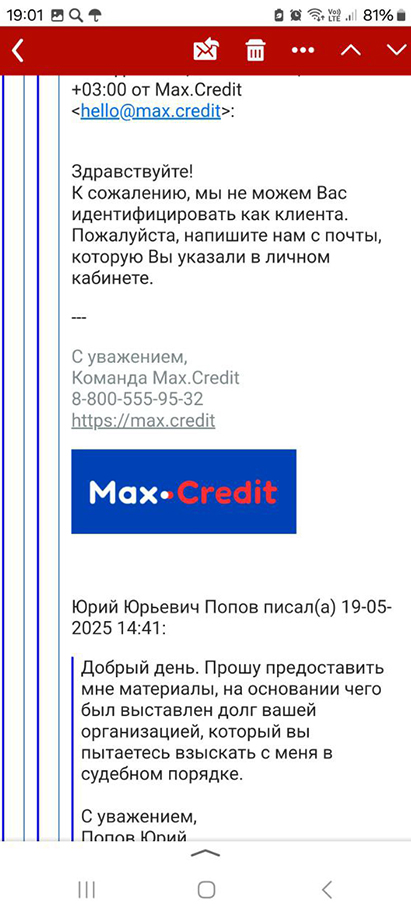
— The law 353-FZ "On Consumer Credit (Loan)", which entered into force in March this year, allows citizens to establish a self-ban on loans, limiting the issuance of any consumer loans, with the exception of mortgages and car loans. This is an extremely appropriate measure proposed by the President and developed by the Government. Credit and financial organizations should rely on the analysis of the client's credit history, monitor anomalies in it: attempts at the first-ever loan, attempts at parallel lending, and the like. But it is worth focusing on a reliable identity verification system by analogy with the well-established security term "multifactor authentication", it is unacceptable to give credit to an online system user who provided only a bad passport photo, and any additional confirmation should be requested," said the Director of Strategic Alliances and Government Relations at the Garda Group of Companies Pavel Kuznetsov.
David and Goliath
According to Matvey Goncharov, Executive Director of the Crime Victims Support Fund, the collection of funds by microfinance organizations on the basis of court orders is a common practice.
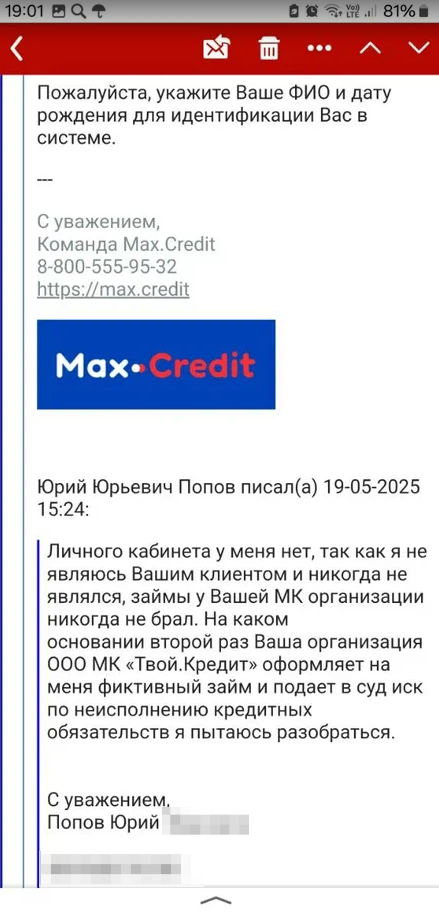
— We have repeatedly encountered situations when citizens find out about the availability of microloans at the time of the arrest of bank accounts by bailiffs. Unfortunately, in most cases, magistrates' courts do not notify about the issuance of court orders, which prevents their timely cancellation. Upon cancellation of court orders, MFIs have the right to apply to the court with a statement of claim for debt collection under loan agreements. During the hearing, citizens have the right to file a petition to request the originals of the loan agreement (if it is claimed that the agreement was signed personally) or to request information about signing documents with an electronic signature (this may also be a mobile phone number). MFIs must prove that they have properly identified the citizen, especially when it comes to executing contracts via the Internet. In some situations, MFIs claim to have authenticated through the public services portal, but in practice they cannot confirm this fact. Moreover, the Ministry of Finance (as the operator of the public services portal) stores information about user actions for only one year. MFOs often hope that the amount of money being collected from "debtors" is many times lower than the amount of possible court costs, so it is easier for some citizens to pay than to waste time on the courts.
In his opinion, microfinance organizations have strong lawyers and a powerful lobby.
— It is worth thinking about inconvenient questions: why was the self-ban on lending adopted a year ago, but entered into force only now; why will MFIs get access to the Central Bank database only in March next year, and the information exchange between MFIs and BKI will be established only by the end of 2026? — says Goncharov.
Kirill Timonin, the foundation's leading lawyer, advised Yuri Popov and other victims of unscrupulous MFOs to seek the restoration of missed deadlines for appealing court orders and decisions, if any, that have already been issued by the courts without the participation of citizens.
— Unfortunately, this is the simplest solution to a problem of this kind today, — concluded Matvey Goncharov.
Переведено сервисом «Яндекс Переводчик»




